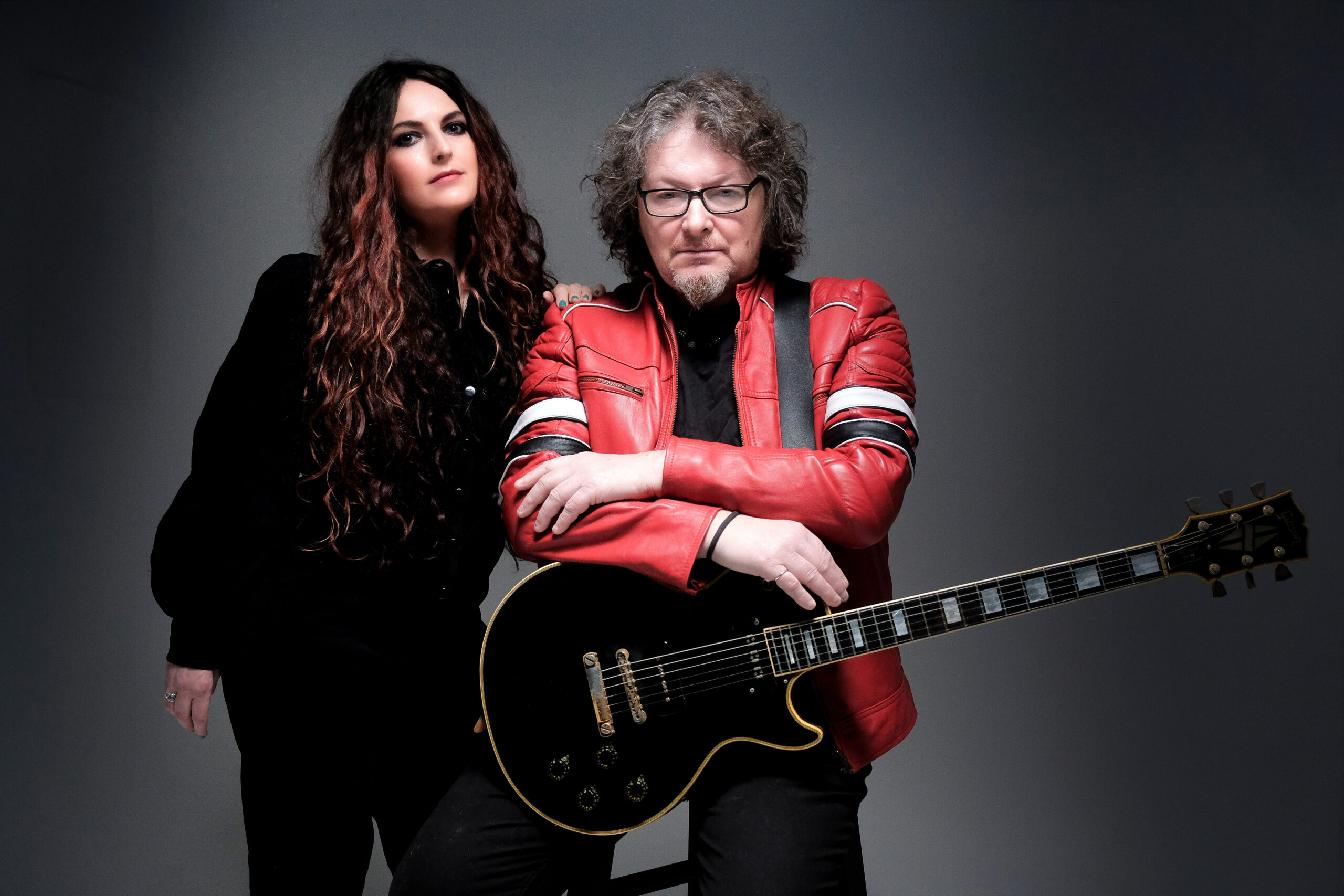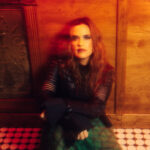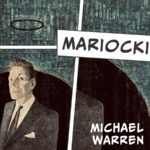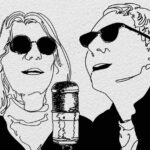
Rick Pilkington of The Blackheart Orchestra reveals the creative intricacies behind their haunting new single, ‘Bloodlines’, the duo’s evolving approach to songwriting, and the challenges of translating their richly layered studio sound to live performances. He also reflects on the overwhelming support from fans, which recently played a crucial role in sustaining their live shows.
‘Bloodlines’ explores trauma, mental illness, and resilience. Could you share how these themes found their way into the song?
We all think that the things passed down to us are physical things like the colour of our eyes and the colour of our hair etc. Bloodlines draws inspiration from the deeper things passed down through our lineage, things like intergenerational trauma, mental illness, strengths and resilience. The song delves into the secrets our bodies hold and asks the question is society’s current epidemic of depression generic or genetic?
With such a diverse array of instruments and genres in your repertoire, how do you decide which elements to incorporate into a track like ‘Bloodlines’? Do the lyrics guide the music or vice versa?
It’s a very random and spontaneous process. Bloodlines started with Chrissy repeating a beautiful acoustic guitar phrase in the tuning of EBEEBE. I then added my three note piano phrase and it just sounded magical and we built it from there. Our writing format is Chrissy is the architect and I’m the painter and decorator. She comes up with the essential idea and the lyrics and my job is to build the idea, help construct the arrangement of the song as a live thing, then when it’s time to take it into the studio we both create the production together. But it’s very exciting and freeing having such a wide range of instruments and sounds at our fingertips – it’s like being able to speak many languages.
Are there any particular artists or genres that have shaped your sound in unexpected ways, or that you’ve found yourselves returning to for inspiration?
I guess both of us have very different musical histories which span different musical generations, but we have never wanted to base our music or be influenced by anything that another artist has done. We both love different styles of music and what we have each soaked up in our musical lifetimes, together we squeeze out of that sponge and what pours out is a blend of unconscious inheritance that has our naturally evolved musical DNA running through its veins.
Performing as a duo, do you ever feel that there are limitations in recreating your intricate studio sound live, or does the smaller lineup offer a sense of freedom and intimacy that larger bands might not have?
Quite often we say wouldn’t it be great to have a band. But then there’s something very unique in the way we are…two people in a circle of instruments with only 20 fingers between us to create every sound we make. The freedom and the challenge in that are what drives us and defines us I think. We see the recorded and live versions of our songs as different entities. They don’t try to be the same. The live version is always the definitive and the recorded version is where we get to enhance, enrich and expand the songs by playing multiple instruments and adding extra orchestral and choral elements. But the songs are always written primarily to be played live and we always tour our songs before taking them into the studio.
Given it finally broke down at 15 years’ use, how did you manage to get through the loss of your mixing desk earlier this year?
Our old desk was one of the very first pieces of equipment we bought when we first began playing together so it was a very sad moment when we knew she was gone. The sound of that desk had shaped our sound and our style for so long but for a long time we had outgrown it and were relying on submixers to give us all the facilities we needed as we grew. It died on the very first chord of the very first song of the very first gig of our Spring tour. At the gig someone suggested doing a crowd funding campaign and at first we thought no-one will give us money, but we tried it offering people the chance to buy a knob or a fader on a new desk and we were just overwhelmed by the response. In a matter of days we were able to buy a mixer three times the size of the old one and we discovered the true power of fan love. We have the best fanbase in the world and we’ll never forget the massive contribution they made!
Your recent live performances have featured new tracks. What has the audience’s reaction been to ‘Bloodlines’, and how do you feel playing such a potentially personal track live night after night?
Reaction to the song has been fantastic. It’s the quietest moment in our show and we look forward each night to its almost silent start. Like many of our songs, we try to paint an abstract picture rather than a photograph and we leave the listener to interpret the meaning of them in their own minds.
Has your perspective on Hotel Utopia’s themes and its creation changed since its release?
No, not at all. Whereas the Mesmeranto album was about facing up to death, Hotel Utopia was about exploring the question of the afterlife. We are both spiritual people and both have deep feelings about faith. We always have a short prayer time at the side of the stage before we walk on to do a show. I know it’s not very rock and roll but it’s important to us.
‘The Flood’ stands as an epic within the album. Was it always envisioned as a longer composition, or did it grow organically during its recording?
No, it was originally envisaged as a much shorter song. In the studio it was Chrissy who suggested extending it with the synth part, then I started playing piano and it started to build even bigger. Then I said let’s introduce drums and a guitar solo which I really enjoyed creating, I still play it note for note every night! Then Chrissy went kind of beautifully crazy with all her abstract vocals and finally I said let’s end with the sound of birds as if we’ve woken up in heaven. I knew I’d recorded some birds one night outside my house when I was working late at 4am, so we just transferred the birdsong from my phone onto the track, spent a while mixing everything and it was complete and just felt emotionally perfect, like a beautiful journey.
What are your plans for the follow-up to Hotel Utopia?
We’re in the process of recording the next album now. We’re four songs in and I can say that we’re extremely excited about the tracks we have so far. Hotel Utopia has been a very successful album for us so the next one was always going to be a steep hill to climb, but we’re enjoying the view from the foothills so far!
Further information
The Blackheart Orchestra’s new single, ‘Bloodlines’, and latest album Hotel Utopia is out now




